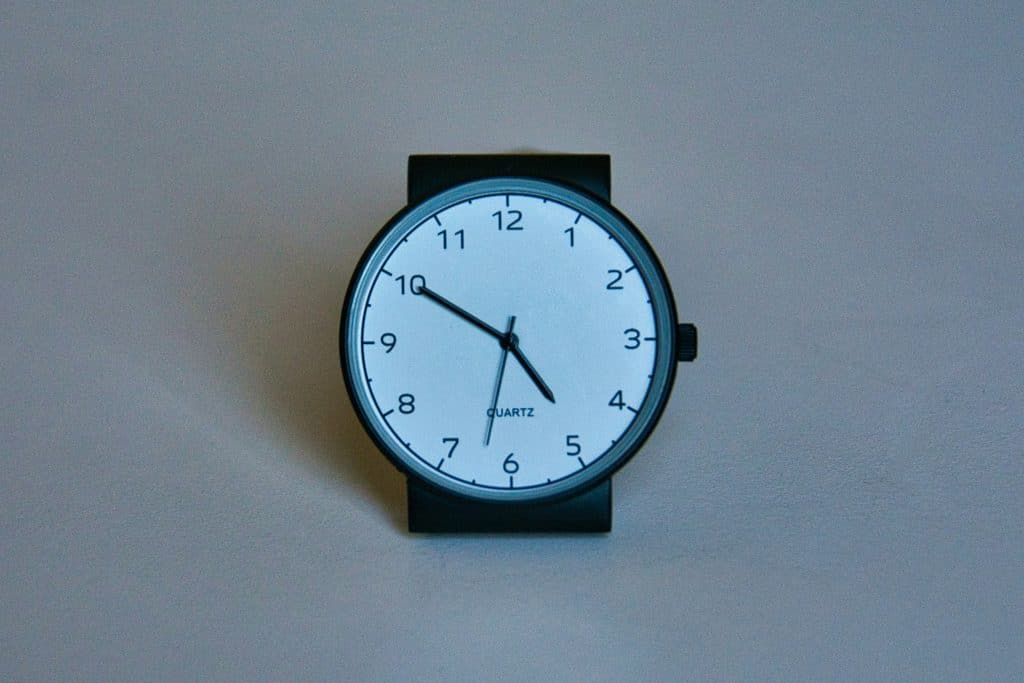One of the most valuable resources of any person is their attention. After all, it is what everyone is chasing in marketing, sales, and other similar verticals. But, in a professional setting, attention can be the difference between high and low-quality work, and by extension—success and failure. If you can focus on a task for a decent period of time, you’ll achieve what we’ll be discussing today: deep work.
With all of the distractions of the digital age, achieving focused work can be challenging. But, its benefits are measurable enough that you should be aiming for it whenever possible. The concept can be even more important if you manage a team of professionals—like at your own business.
In this guide, we’ll explore the concept of deep work—covering everything about it. We’ll look at how time trackers contribute to it, and how your team can make use of them to achieve focused work.
What is deep work?
To start off, let’s explore the basics: what is deep work? The concept simply refers to a state of deep focus—without any distractions and interruptions. Throughout it, many professionals even feel the need to disable varying communication channels—effectively working asynchronously for a bit. Deep work is usually used with moderately challenging tasks, not repetitive or tedious ones. During it, you’ll also notice that you won’t change between tasks that often. Switching tasks can take you out of the state as you need to readjust to your new assignment—acting like a distraction.
Distractions are plentiful in the average professional environment, which makes achieving deep work difficult. While it’s not impossible, its opposite is much more popular—shallow work.
Deep work vs shallow work
Shallow work doesn’t require much attention and is usually best for easy, yet repetitive tasks. It will likely involve lots of distractions, and even multitasking. While it’s not the most effective way to complete tasks, it will be the only option when you’re tired. This highlights a key requirement for deep focus—energy.
Factors like a poor work-life balance and work overload will make it harder for you and your staff to achieve deep work. Your management team might be affected in this regard by other things as well—like decision fatigue.
Having said all this, you might be wondering why deep work is important in the first place. This is what we’ll explore next.
Why is deep work important?
Deep work can offer you and your team a number of benefits. These include:
- Increased productivity
- Higher output quality
- Enhanced professional engagement
We’ll now explore these in-depth, starting with the first one.
Enhanced Productivity
As deep work lacks any distractions, it will allow your employees to perform their best. The key reason behind this is that focused working sessions eliminate multitasking. If you’re not aware, while multitasking may feel productive for some people—it is not as effective as monotasking. Multitasking increases the likelihood of mistakes and can cause many unnecessary delays and stress.
Higher-quality work
Besides getting more done, your staff will also be able to produce a higher-quality output with deep work. Attention plays a major role in the quality of people’s work, which is why deep focus sessions can drive better results. While this is a key benefit for all of your employees, it can be particularly valuable for managers—like in the process of data-driven decision-making.
Increased job satisfaction and engagement
Focused working sessions can leave professionals with a sense of fulfillment. A key reason for this is the aforementioned increased productivity, which will help your team get more done in a given period. Another contributing factor is that deep focus typically involves larger, more important tasks. Crossing off a daunting assignment from a to-do list is always satisfying—leading to your staff being more engaged in their jobs.
Improving professional engagement is something many managers strive for, as it can have a variety of benefits for businesses. A popular way of doing so involves time tracking software—which can also help your employees use deep work more frequently.
Time tracking is essential to deep work—and here’s why
Managing time correctly is a vital part of deep work. More specifically, it is an absolute must to avoid distractions—like other, less important tasks. Time tracking software is perfect for this purpose. Implementing team time management techniques can be quite easy with them. Many high-quality examples can even help you ensure your staff don’t get distracted in their deep focus sessions.

Using time tracking for deep work: step-by-step for your team
Let’s now explore how you can use time tracking apps to help your team achieve deep focus. This process starts with the first step to implementing pretty much any productivity strategy: setting goals.
- Setting clear goals: Before starting deep work, your staff must know what they should aim to achieve. Using a time tracker with a task management system will help you stay organized in this regard. By setting priorities and deadlines, it can be easy for your employees to know what they need to do next. Task management features can also help you break down larger tasks into ones that are a perfect fit for shorter deep focus sessions. Using functionality like WebWork’s sub-tasks can be perfect for this.
- Allocate time to deep work: After setting their goals, your team should set aside time for a session of deep focus. You can use various time management strategies for this, like time blocking or timeboxing. When the time comes, staff can begin deep working—but there’s one last step you should do beforehand: setting up distraction alerts.
- Set up alerts for non-productive apps: Many high-quality time trackers let you set various applications and websites as either productive or non-productive. Apps like WebWork will automatically remind employees to not spend much time on distracting platforms. This will help your staff retain their focus throughout their sessions—even if something like an email distracts them temporarily.
As you might imagine, you’ll need a powerful time tracker to take advantage of deep focus—both on your own and for your team. Let’s explore what to look for in a time tracker for deep focus.
Key time tracking features for deep work
The main features you should look for in a time tracker for deep work are:
- Automatic time tracking—An automatic tracker will help your staff track their work hours while they immerse themselves in deep work. They won’t have to remember to start tracking time, or worse—have to be distracted to turn on their trackers.
- Task management functionality—Managing the tasks of your team is crucial to planning focused working sessions ahead of time. Using a high-quality time tracker with advanced features—like sub-tasks and priority levels—will further streamline your workflows.
- Distraction alerts—Reminding your staff to avoid non-productive platforms won’t help them achieve deep focus. Instead, it’s invaluable for maintaining it. Such functionality can be beneficial outside of deep work sessions as well, helping your employees avoid wasting time.
- Detailed reports—Similarly to distraction alerts, reporting functionality will help you improve your staff’s efforts to achieve deep work. You can use various data to help team members achieve deep focus in their peak productivity times—further boosting their productivity. Tracked data is also helpful in measuring the effectiveness of deep focus for your team.
Measuring the effectiveness of deep work with time tracking
Before closing off this guide, let’s briefly explore how you should measure the effectiveness of deep work with a time tracker. This involves two key points:
- Task progress
- Time spent on non-productive apps
In terms of task progress, tracking how quickly they get completed will help you see if your team’s faster with deep work. If used correctly, focused work sessions should result in quicker progress. In case you don’t see this in your staff, they might not be using deep focus effectively.
When it comes to time spent on non-productive apps, tracking this will help you in many ways. You’ll be able to not only see how much time your team wastes at work, but also when they do so. You should then adjust their schedules to maximize their deep working potential.
Final Thoughts
Attention is one of the most valuable resources anyone has, and using it wisely is important—especially in professional settings. Achieving deep focus will enable staff to perform their best and produce their highest quality work. In turn, this will allow your business to speed up its growth. Taking advantage of the positives of focused working can be a bit tricky. But, with a high-quality time tracker, you can do so pretty easily.

